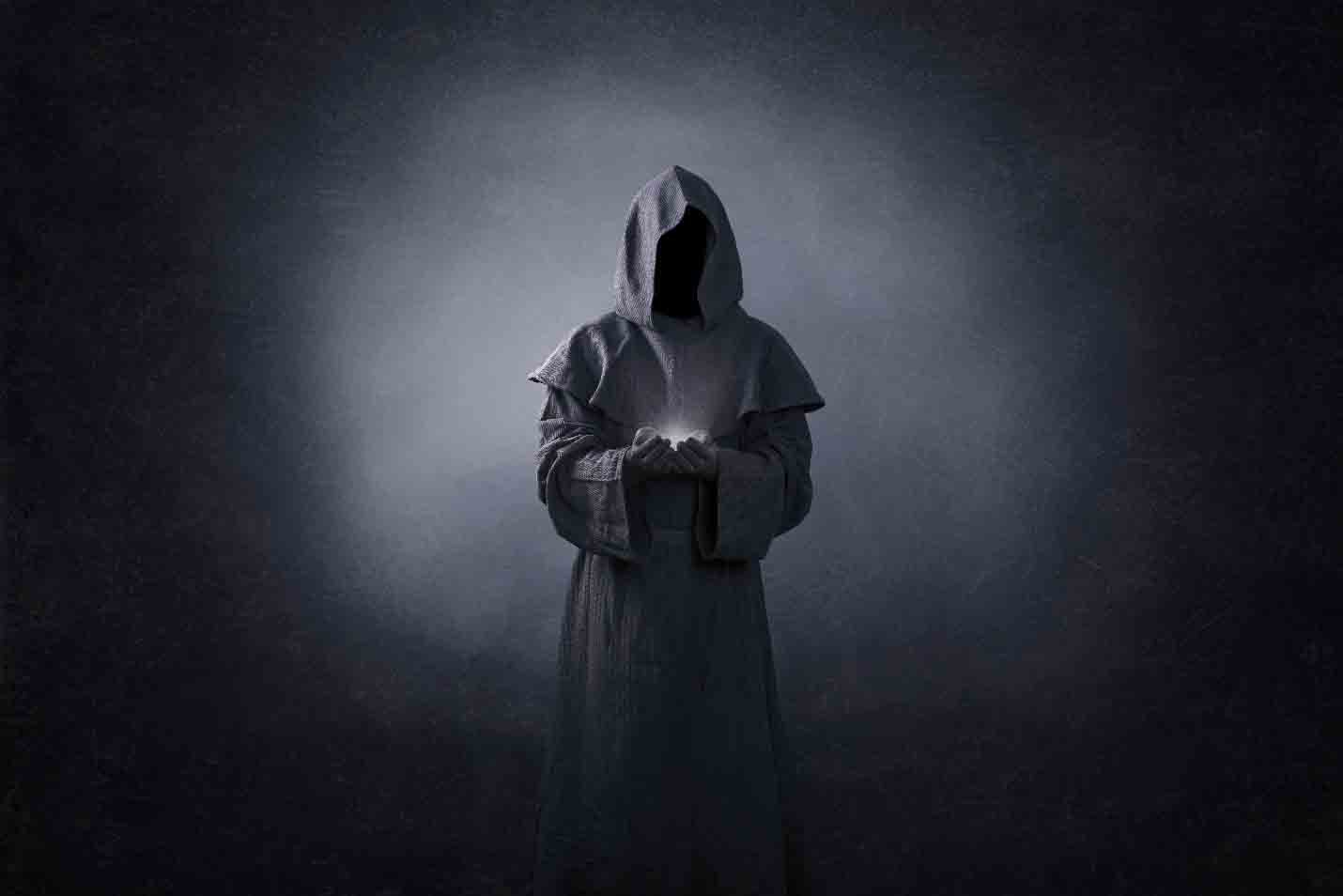Unveiling The Mystery: Who Or What Is The Antichrist?
Have you ever wondered what the big deal is about the Antichrist? This term has been tossed around in movies, books, and religious discussions for ages. It’s like the ultimate villain of all time, but what does it really mean? The Antichrist is more than just a scary figure in apocalyptic tales—it’s a concept that has shaped human history and continues to spark debates today. Let’s dive into this fascinating topic and uncover the truth behind the mystery.
When people hear the word "Antichrist," they often picture some supernatural entity or a powerful leader with evil intentions. But is that all there is to it? The reality is far more complex and intriguing. The Antichrist isn’t just a religious concept; it’s a cultural phenomenon that has influenced art, literature, and even politics over the centuries. So, why does this topic matter so much?
Well, understanding the Antichrist can help us make sense of the world around us. Whether you’re religious, spiritual, or just curious about the origins of certain ideas, this topic offers a deeper look into human beliefs and fears. Stick with me as we explore the history, myths, and truths surrounding the Antichrist. Trust me, it’s gonna be an eye-opener!
Read also:Why Yailin La Mas Viral Erome Is Taking The World By Storm
What Exactly is the Antichrist?
Let’s get straight to the point. The term "Antichrist" comes from the Bible, specifically the New Testament, where it appears in the letters of John. But before we dive into the Bible stuff, let’s break it down in simpler terms. The Antichrist is essentially someone or something that opposes Christ. Think of it as the ultimate adversary of Jesus Christ, but with a twist. It’s not just about being evil—it’s about deceiving people and leading them away from the truth.
Now, here’s the kicker: the Bible doesn’t necessarily say the Antichrist is one specific person. Some interpretations suggest that it could be a system, an ideology, or even a group of people who work against the teachings of Christ. This opens up a whole new level of complexity and debate. So, is the Antichrist a person, a concept, or both? That’s what we’re here to find out.
Historical Background of the Antichrist
To truly understand the Antichrist, we need to look back at history. The concept of the Antichrist has been around for centuries, and it’s been interpreted in different ways by various cultures and religions. In the early days of Christianity, the idea of the Antichrist was used to explain the challenges and persecutions faced by the Church. It was like a way of saying, "Hey, there’s a bigger force at work here trying to destroy us."
Over time, the Antichrist became a popular theme in art and literature. Think of Dante’s "Inferno" or John Milton’s "Paradise Lost." These works portrayed the Antichrist as a powerful and sinister figure, often with supernatural abilities. But it wasn’t just limited to fiction. Throughout history, many leaders and movements have been labeled as the Antichrist by their opponents. From Roman emperors to modern-day politicians, the title has been thrown around like a political weapon.
The Antichrist in Religious Texts
Let’s take a closer look at what the Bible actually says about the Antichrist. In 1 John 2:18, it states, "Children, it is the last hour; and just as you heard that antichrist is coming, even now many antichrists have appeared; from this we know that it is the last hour." Notice how it says "many antichrists" instead of just one? This suggests that the Antichrist isn’t necessarily a single person, but rather a representation of all those who oppose Christ.
In Revelation 13, we get a more vivid description of the Antichrist, often referred to as the Beast. This chapter talks about a powerful figure who rises to prominence and deceives the masses. It’s a scary image, but it also raises questions about the nature of power and authority. Is the Antichrist a literal figure, or is it a metaphor for the dangers of blind obedience and corruption?
Read also:Amish Tolia Net Worth A Deep Dive Into The Life And Wealth Of A Bollywood Mogul
Common Misconceptions About the Antichrist
There are a lot of myths and misconceptions surrounding the Antichrist. Some people believe that it’s a specific person who will appear at the end of the world, while others think it’s just a metaphor for evil. So, let’s clear up some of these misunderstandings:
- The Antichrist is not necessarily a supernatural being. While some interpretations suggest that it could have demonic origins, others argue that it’s simply a human figure with great influence.
- Not all religions agree on the concept of the Antichrist. In Islam, for example, there’s a similar figure called the Dajjal, but the details differ significantly from Christian teachings.
- The Antichrist is not just about the end times. While it’s often associated with apocalyptic scenarios, the idea of opposing Christ can be applied to any time or place in history.
These misconceptions can lead to confusion and fear, which is why it’s important to approach the topic with an open mind and a willingness to learn.
The Antichrist in Popular Culture
From movies to music, the Antichrist has made its way into mainstream culture. Think about films like "The Omen" or songs like "Antichrist Superstar" by Marilyn Manson. These works often portray the Antichrist as a dark, mysterious figure with a charismatic presence. But why do we find this concept so fascinating?
One reason is that the Antichrist represents the ultimate conflict between good and evil. It’s a story that resonates with people on a deep level, tapping into our fears and desires. Another reason is that it allows us to explore complex themes like power, deception, and morality. Whether we’re watching a movie or reading a book, the Antichrist challenges us to think about what it means to be human and what we believe in.
Antichrist in Modern Media
In recent years, the Antichrist has been reimagined in various forms of media. Shows like "American Horror Story" and "Supernatural" have featured episodes centered around the Antichrist, often blending religious themes with modern storytelling. These portrayals highlight the ongoing fascination with the concept and its relevance in today’s world.
But it’s not just limited to fictional works. In the realm of politics, the term "Antichrist" is sometimes used to describe leaders who are perceived as threats to religious or moral values. This shows how the concept continues to evolve and adapt to changing times.
Theological Perspectives on the Antichrist
Different branches of Christianity have varying views on the Antichrist. For example, Catholicism often emphasizes the role of the Church in combating the influence of the Antichrist, while Protestant denominations may focus more on individual faith and discernment. These differences highlight the diversity of beliefs within Christianity and the importance of understanding context when discussing the Antichrist.
Other religions, such as Judaism, do not have a direct equivalent to the Antichrist, but they do have their own interpretations of end-times events. This shows that the concept of opposition to divine truth is not unique to Christianity but is a universal theme across many cultures and belief systems.
Psychological and Sociological Implications
The idea of the Antichrist can also be examined from a psychological and sociological perspective. On a personal level, the concept can serve as a reminder of the dangers of blind faith and the importance of critical thinking. It encourages individuals to question authority and seek truth rather than blindly following leaders or ideologies.
On a societal level, the Antichrist represents the tension between tradition and progress. It’s a symbol of the ongoing struggle between established beliefs and new ideas. This tension can lead to both positive change and conflict, depending on how it’s handled.
Antichrist as a Metaphor for Modern Issues
In today’s world, the concept of the Antichrist can be applied to various social and political issues. For example, some people see globalism, technology, or even certain ideologies as modern-day versions of the Antichrist. While these interpretations may vary, they all point to a deeper concern about the direction of society and the potential for corruption and manipulation.
This metaphorical understanding of the Antichrist allows us to address real-world problems in a meaningful way. It challenges us to think critically about the systems and structures that shape our lives and to work towards creating a better future.
How to Recognize the Antichrist
So, how do you spot the Antichrist? While there’s no definitive checklist, there are certain signs and characteristics that are often associated with the concept. Here are a few things to look out for:
- A charismatic leader who gains a large following through deception and manipulation.
- A figure who promotes values and beliefs that contradict traditional teachings.
- Someone who seeks to undermine religious or moral authority for personal gain.
Of course, these signs can apply to many leaders and movements throughout history, which is why it’s important to approach the topic with discernment and humility. Remember, the Antichrist isn’t just about identifying a specific person—it’s about recognizing the dangers of deception and staying true to your beliefs.
Conclusion: Embracing the Truth
In conclusion, the Antichrist is more than just a religious concept—it’s a powerful symbol that reflects our deepest fears and aspirations. By understanding its historical and cultural significance, we can gain a deeper appreciation for the complexities of human belief and the ongoing struggle between good and evil.
I encourage you to share your thoughts and insights in the comments below. Are there any specific aspects of the Antichrist that intrigue you? Do you have a different perspective on the topic? Let’s keep the conversation going and continue exploring the mysteries of the Antichrist together.
Table of Contents
- What Exactly is the Antichrist?
- Historical Background of the Antichrist
- The Antichrist in Religious Texts
- Common Misconceptions About the Antichrist
- The Antichrist in Popular Culture
- Antichrist in Modern Media
- Theological Perspectives on the Antichrist
- Psychological and Sociological Implications
- Antichrist as a Metaphor for Modern Issues
- How to Recognize the Antichrist


